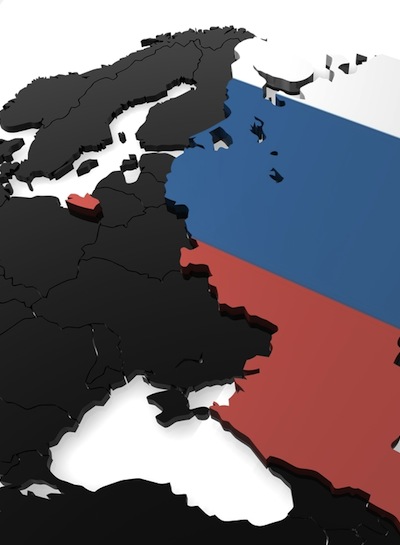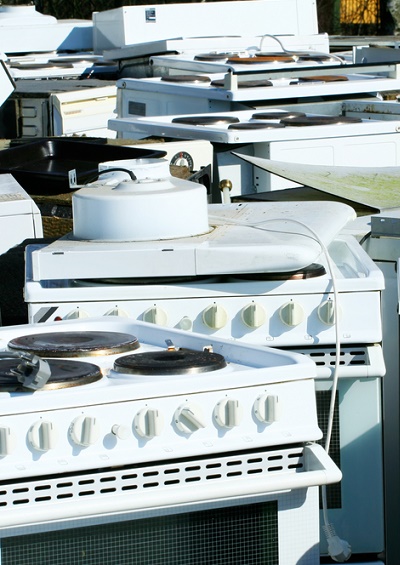The EU Saved Poland from Ukraine’s Fate
Russia’s “pacification” policies stand in complete contrast to the EU’s strategy – and results.
May 10, 2014

Awarding the Peace Nobel Prize is a hit or miss affair. In 2009, when it was given to Barack Obama, the Norwegian committee’s choice turned out to be ill advised. And when the EU received the award in 2012, at the height of the euro crisis, the decision provoked ridicule in some quarters.
Now, the wisdom of the Nobel Committee’s is obvious for all to see. Ten years after the eastward enlargement of the European Union, the reason why the EU has actually earned the honor is in plain sight.
One only has to compare the fate of Ukraine to that of its western neighbors to assess what a peacemaking effect the integration of eight Central European countries, which occurred in 2004, has had in today’s world.
In Estonia, Latvia, Lithuania, Poland, Czech Republic, Slovakia, Hungary and Slovenia, democracy and the rule of law apply (with notable exceptions in the case of Hungary). These countries’ standards of living, their social systems and the rights of minorities have improved. To be sure, some things can still improve.
A stark contrast
But the difference between them and Ukraine is huge. Of course, this win for freedom and prosperity is not the EU’s merit alone. The combination with the parallel expansion of NATO was crucial.
The Alliance works primarily through its credible assistance promises. The EU, with its admittedly rather painstaking approach, has civilized everyday life in many areas in these countries.
And yes, the EU established concrete conditions that countries must meet. But it does so in a fair quid pro quo. Countries that undertake these transformation measures receive generous aid to facilitate the adjustment process. From that, a better world emerges – and better lives for the citizens of the countries in question.
The road not taken
Just how immense the progress in Central Europe is can only be properly understood if one considers that, after World War I, one spoke disparagingly of this part of Europe as “in-between Europe” — caught in the middle, with no clear way or direction to go, advance or catch up.
Indeed, looking back at the First World War and its consequences gives one an idea how different the history of central Europe could have turned out after 1989. Back then, after the defeat of the German Empire and the Habsburg monarchy in 1918, several new nation states were created: Poland, Czechoslovakia, the Baltic states and Yugoslavia.
The big debate at the time was whether those fledgling, newly composed states would last. The expectation was that they were ripe for the picking, if a major power would intervene with a determined hand and military might.
Missed opportunities
That’s precisely how it turned out, when Hitler made his grab in 1938/39. The point about Putin today, after his grab of Crimea, is not whether, in the mind of Hillary Clinton and others, he is another Hitler.
The point is that Putin’s hands are actually firmly tied. Unlike the situation between the world wars, there are now critical stabilization structures in place, thanks to the EU (and NATO).
Ukraine’s bad luck was that the EU and NATO do have limited capabilities – and, most significantly, other candidate countries were simply better prepared when the opportunity arose.
Ukraine’s politicians, most of which are still currently in the competition of running the country today, did screw up in a major style. They really missed the boat.
It is quite tragic that Ukraine’s people have to bear the consequences of this past malfeasance of their leaders, including that of the business titans now presenting themselves to the voters as the country’s salvation.
Russia is on the way to an authoritarian regime
Another key element of the current landscape, of course, is the fact that Russia is not just on the way back to an authoritarian regime, but that it is leaving the road of enlightenment behind, on which it remarkably traveled culturally and scientifically even in Soviet times.
Putin’s Russia, supported by the majority of the population, is a construct that relies on an aggressive nationalist populism. It is therefore also a country that has laid down its marker by liberally discriminating against minorities, whether they are homosexuals, dissenters or non-Russians.
For all it current obsession on Ukraine, Washington would also be wise to remember that Moscow has applied targeted destabilization policies in Moldova, Georgia, Armenia and other former Soviet republics long before the protests unfolded in Ukraine.
It did so by shamelessly encouraging certain ethnic minorities to revolt, staging its own troops nearby — and then cynically offering the Russian military up as the only possible “mediator” to bring back peace and stability.
The ways and means of Russia and the EU could not be more different. One is cynical, the other constructive. One is solely self-interested, the other primarily “other-interested.”
A poor Russian track record
Whether one looks at Nagorno-Karabakh, Transnistria, Abkhazia or Ossetia, ten to 20 years onward, no semblance of peace has emerged. Russia’s “pacification” policies stand in complete contrast to the EU’s strategy – and results — as witnessed in the new EU countries.
The reason for the incredible contrast is self-evident: The aim of any Russian “peacekeeping” is not to make peace, but to keep the conflicts boiling to maximize Russia’s lever for influence.
Because of that toxic recipe, Europe is now divided in two ways: The EU has significantly expanded the area of stability, but an “in-between Europe” – one that haplessly hangs in the balance — exists nevertheless only a few hundred kilometers to the east.
Russia follows a different principle in its competing organizational approach. The EU approach is based on cooperation and mutual attraction, Russia’s on 19th century power politics and deterrence.
The most sobering news is that Moscow, in the more than 20 years since the end of the Soviet Union, has never even tried to be an attractive partner for its neighbors. There cannot be a more telling indicator of a nation’s lack of confidence and belief in itself than this.
Editor’s note: This article is adapted from a feature that appeared in Germany’s Berlin-based Tagesspiegel newspaper.
Takeaways
Countries like Poland or Slovakia owe it to the EU that they are not now threatened like Ukraine.
Russia's "pacification" policies over 20 years stand in contrast to the EU's strategy – and results.
Looking back at WWI's aftermath gives an idea how badly central Europe could have turned out after 1989.
Read previous

Sizing Up Nigeria’s Power Needs
May 10, 2014
